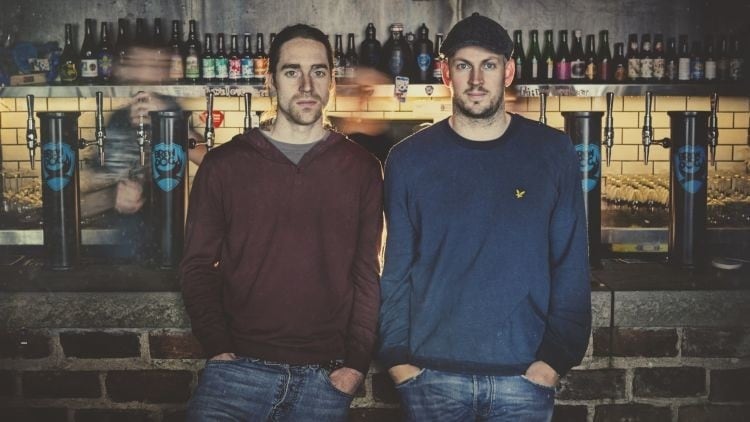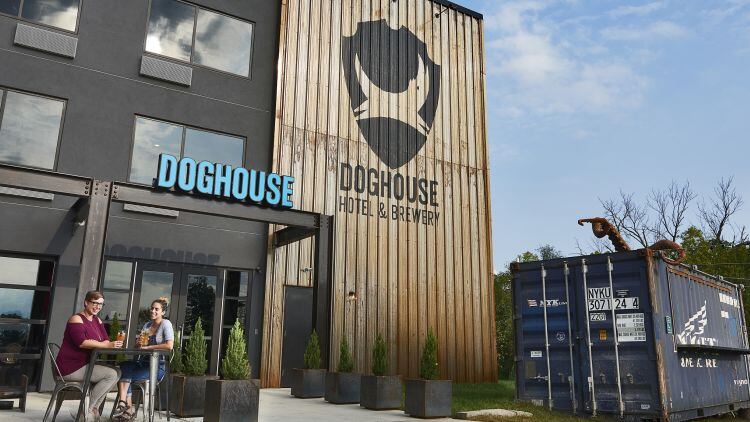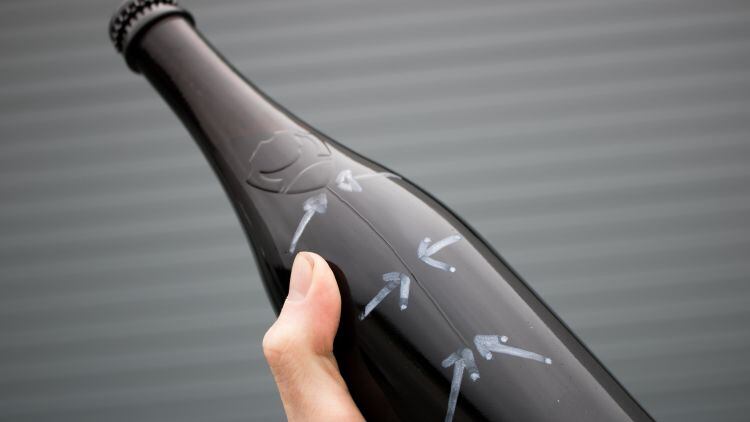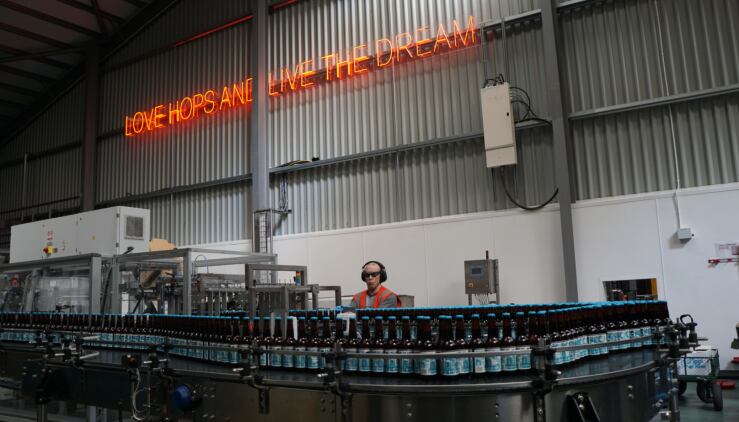The Scottish brewery has developed something of an (in?)famous reputation for its big, bold, brash beers, and its even bigger, bolder and brasher PR stunts and marketing campaigns.
After founders James Watt and Martin Dickie once again found themselves in hot water over the launch of their TV network, The Morning Advertiser looks back on some of the brewery’s best (and worst) marketing stunts to date.
Beer Porn
What went down: Announcing the launch of The BrewDog Network – a TV channel/subscription service about the beer and wider drinks industry – BrewDog parodied a famous online adult entertainment website with a landing page titled ‘Beer Porn’. According to the company, the parody was designed to highlight the new streaming service’s intention to be bigger than pornography.
The website featured parodies of pornographic video titles such as Two Amateurs go Brewdogging, Nerdy Brunette Loves Big Cocktails, and Josh has an Ale-to-Mouth Adventure, as well as a video named Jungle Fevre (a play on the phrase “jungle fever,” a derogatory reference toward interracial relationships.)
How did people react: The backlash was instant and ferocious. Beer writers Melissa Cole and Carla Jean Lauter called out the website for its misogyny, homophobia and transphobia, while others described it as “repulsive”. Some Equity for Punks investors even went as far as asking to sell their shares in the company.
Within 24 hours, a red-faced BrewDog had removed links to the site, and later posted a blog on its website acknowledging that it faced “increased responsibility” and ”no longer need to try and wrap things up in crazy stunts” to make itself heard.
Verdict: MISS
Pink IPA
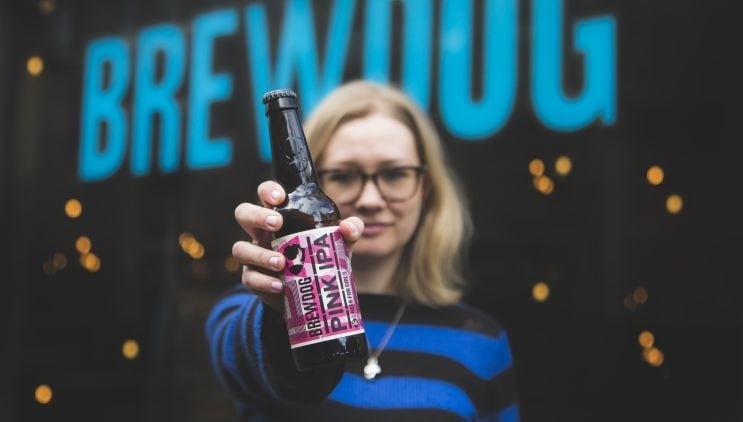
What went down: To coincide with International Women’s Day 2018, BrewDog released a garish pink version of its Punk IPA beer, satirically labelled a ‘beer for girls’. The beer came in a bright pink label, was designed to highlight issues surrounding the gender pay gap, and was served 20% cheaper to those who identified as women.
How did people react: Despite the brewery signalling its intention to donate 20% of its proceeds from bottled Pink IPA and Punk IPA to causes that fight against gender inequality, the public at-large were not impressed, with one commentator comparing it to Yorkie’s 2002 ‘it’s not for girls’ campaign.
Speaking to The Morning Advertiser, Watt admitted the concept was “lost in translation” and suggested he would “probably” reconsider the idea with the benefit of hindsight. "The whole campaign kind of fell down, and there was a bit of a backlash,” he added.
Verdict: MISS
Toyko/Nanny State
What went down: Over the course of its explosive history, BrewDog has had a number of high-profile spats with industry watchdog The Portman Group. The most famous came in 2009, when the organisation banned its 18% Tokyo Imperial Stout, amid shock-horror headlines about its strength. The group said it was unwise for any company to urge consumers to drink to excess (a message on the label said people must, from time to time, have excess, and added: "This beer is for those times").
How did people react: The response of Watt and Dickie to the ruling will surely go down as one of BrewDog’s best. The brewery laid into The Portman Group for targeting specialist, niche products not designed to be consumed in pints, while ignoring the sale of cheap supermarket alcohol where, according to Dickie, "literal excess is contributing to Scotland's problem with alcohol”.
The brewery then reacted by producing a 1.1% beer called Nanny State. "If logic serves the same people who witch-hunted and publicly slated us should now offer us heartfelt support and public congratulations,” Watt added, tongue firmly pressed in his cheek. A 0.5% version of this beer has gone on to become one of the UK’s most popular low-alcohol beers, helping to drive interest in the category.
Verdict: HIT
The End of History
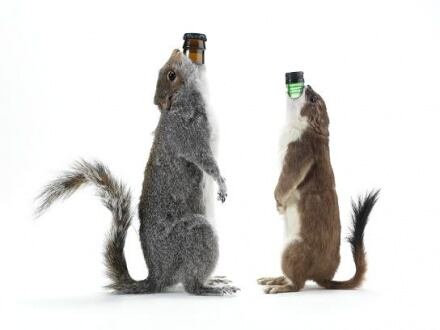
What went down: After becoming involved in something of a boozy arms-race with German based Schorschbrau brewery, BrewDog announced the release of ‘The End of History’ in July 2010, claiming it had created the world’s strongest beer.
Not content with a whopping 55% ABV and a £500 price tag, the brewery went even further, packaging the 12 bottles of the beer inside the bodies of dead animals. The taxidermied dead stoats, squirrels and hares were dressed in outfits including kilts and top hats, while it was recommended the beer was drunk “like a fine whisky''.
How did people react: Although the stoats and squirrels in question had died of natural causes, Advocates for Animals and Alcohol Focus Scotland both condemned the marketing, describing it as “perverse” and accusing the brewery of “out-of-date shock tactics” that “exploited and degraded animals”.
However, the beer was a product that simply could not be ignored; it was mentioned more than 10,000 times on Twitter, covered in every major news outlet and, according to author Henkka Hyppönen', generated the brewery around £650,000 of media coverage. It demonstrated the value of taking risks as a small company, and catapulted BrewDog onto the global stage.
Verdict: HIT
Don’t Make Us Do This/No label
What went down: In 2015, BrewDog released a video titled Don’t Make Us Do This, showing James Watt and Martin Dickie begging on the street and posing as sex workers in windows. The concept was intended to poke fun at the brewery’s founders as being desperate to secure funding for their Equity for Punks crowdfunding campaign.
How did people react: Very badly. Nearly 8,000 people signed a petition that stated the video featured “offensive caricatures of people, many of whom already suffer discrimination every day [such as] homeless people, trans women and sex workers”, while urging the brewery to pull the video and issue an apology.
In a statement, Watt defended the video as being “made in the spirit of fun”, and said: “It’s a shame that some people have taken offence where none was intended. We have a history of supporting and championing the LGBT community, and will continue doing so… watch this space.”
A subsequent "transgender beer" was also criticised by LGBTQI+ charity Stonewall for failing to reflect the diversity of the trans movement, despite profits from the sales going to LGBTQI+ events organisers Queerest of the Queer.
Verdict: MISS
A pint sized protest
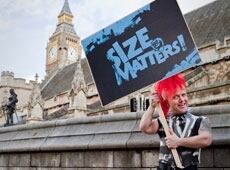
What went down: In an attempt to tear up UK licensing laws that said beer can only be served in third, half or full pint measures, BrewDog sent a dwarf to Westminster on a weeklong protest to argue that two thirds of a pint measures should be introduced in British bars and pubs.
The brewery argued that two thirds of a pint was the perfect size for artisanal beers and would help to combat irresponsible drinking and encourage a more sophisticated drinking experience based on quality over quantity.
How did people react: BrewDog’s tiny protest helped kickstart a movement that led to the introduction of schooners - an Australian two-third pint measure in 2011, bringing an end to 300-year-old pub legislation that stated beer could only be sold in third, half and pint measures.
The change was welcomed across the industry, with commentators praising the additional flexibility that the new measure brought for pubs and drinkers. British Beer and Pub Association (BBPA) chief executive Brigid Simmonds said: "Choice is good for customers, and more choice over drinks sizes in pubs is something we have lobbied for over many years. While the pint remains a great British icon, the two-thirds of a pint will give greater flexibility over how beer is served."
The 2/3 pint measure has been widely adopted across the industry, and many specialist craft beer venues now use it instead of pints as their default measure for stronger beers.
Verdict: HIT

